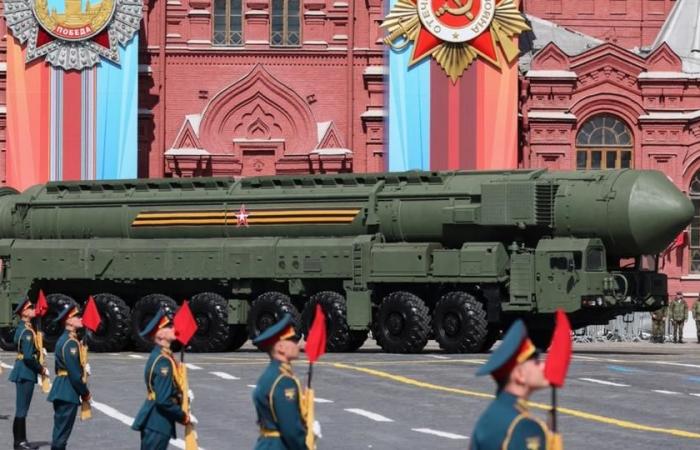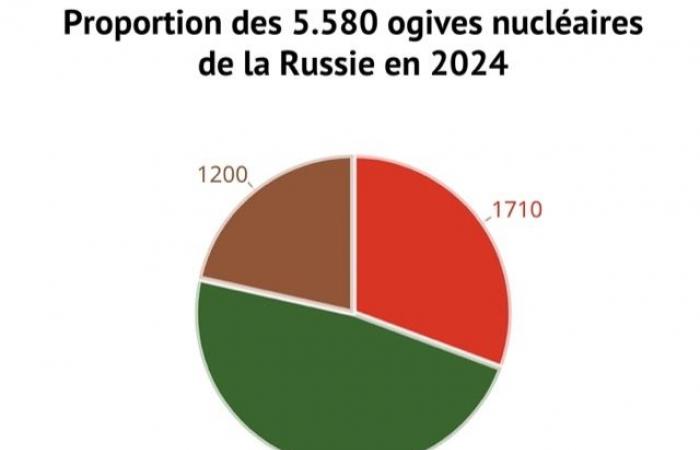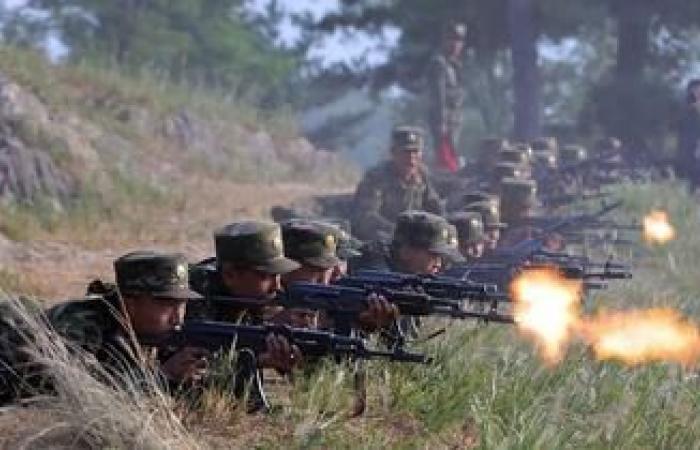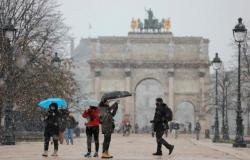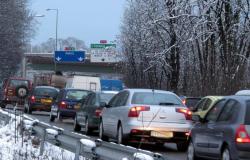Russia accused the United States of doing everything to “prolong the war” by increasing its arms supplies to Ukraine, shortly after announcing the delivery of antipersonnel mines, despite Russian warnings, including including nuclear.
A new rise in tensions. Departing before Donald Trump takes office in January, Joe Biden’s administration recently authorized Ukraine to strike on Russian territory with American-made long-range missiles, a red line for Moscow.
On Wednesday, November 13, a senior American official announced that Washington was preparing to supply Ukraine with antipersonnel mines, a type of weapon widely criticized by NGOs for the number of civilian victims it causes, including long after the end of conflicts. But this weapon could help slow down the advance of Russian troops, which is accelerating in the East.
The United States “is fully committed to prolonging the war in Ukraine and is doing everything it can to this end,” criticized Kremlin spokesperson Dmitri Peskov, without being able to confirm these mine deliveries. According to the American official, the mines supplied to Ukraine will be “non-persistent”, that is to say equipped with a self-destruction or self-deactivation device. They are intended to strengthen Ukrainian defense at a time when its troops are retreating on the front.
An anti-mine organization, the ICBL – winner of the Nobel Peace Prize in 1997 – condemned a “disastrous decision by the United States” and called on Ukraine to refuse to use this type of weapon. Threats which pushed the President of the Republic Emmanuel Macron to denounce on the sidelines of the G20 summit an “escalatory” posture of Russia, which he called “to reason”. Here are the 9 most powerful countries in terms of nuclear weapons in 2024.
Russia ahead of the United States and China
According to estimates from the Federation of American Scientists (FAS), Russia holds, according to the latest official figures for the year 2024, 5,580 nuclear warheads, more than any other country in the world. In detail (see infographic below), Russia has 1,710 warheads which are currently deployed and ready for use, 2,600 in reserve and 1,200 which are out of service.
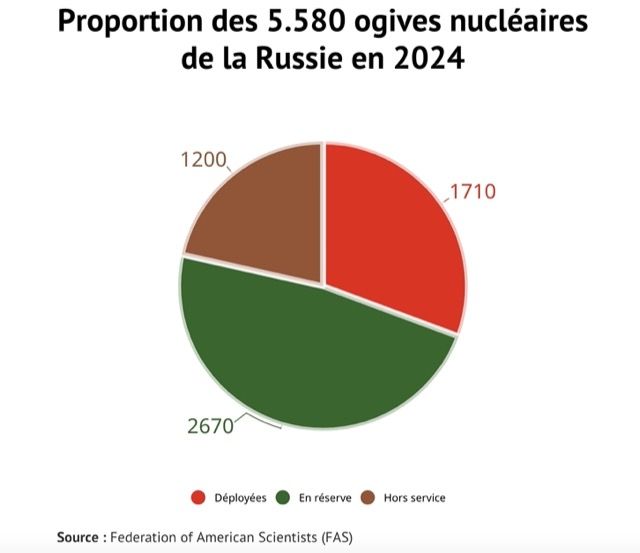
Russia is closely followed by the United States with 5,044 nuclear weapons available. Between them, these two states have in their hands more than 80% of the world’s nuclear weapons. Then comes, far behind, China, the world’s third nuclear power with its 500 warheads. Then come France (290), the United Kingdom (225), Pakistan (170), India (170), Israel (90) and North Korea (50).
To better understand the distribution of these weapons, two types of warheads exist, the intercontinental strategic (deployed), the most powerful and long-range, then the non-strategic, called tactical, of shorter range and intended for the battlefield. . The exact number of the latter is difficult to estimate because they can be used by simple tanks or naval warships, confusing them with conventional charges. However, some of these weapons are destined to be dismantled because they are too old, damaged or no longer necessary.
The use of nuclear weapons simplified by Russia
Russia had already accused Ukraine’s Western allies on Tuesday of seeking to “escalate” the conflict, after a first Ukrainian strike on its territory using American long-range ATACMS missiles. She claimed to have destroyed five projectiles that targeted military installations in the Bryansk region, bordering Ukraine, and promised an “appropriate response” to these shots which once again led Moscow to use nuclear discourse.
According to its new doctrine on the use of nuclear weapons, made official on Tuesday November 12, Russia can now use them in the event of a “massive” attack by a non-nuclear country but supported by a nuclear power, a clear reference to the Ukraine and the United States.
This change “de facto excludes the possibility of defeating the Russian armed forces on the battlefield,” said the head of Russian foreign intelligence, Sergei Naryshkin, on Wednesday, suggesting that Russia would resort to the atomic bomb rather than risk death. defeat in a conventional war.
![La Corée du Nord a déjà envoyé plus de 10.000 de ses soldats dans la région de Koursk (Russie). [AFP PHOTO/KCNA VIA KNS]](https://euro.dayfr.com/content/uploads/2024/11/21/3e7741107f.jpg)
![La Corée du Nord a déjà envoyé plus de 10.000 de ses soldats dans la région de Koursk (Russie). [AFP PHOTO/KCNA VIA KNS]](https://locals.dayfr.cam/wp-content/uploads/2024/11/1732186998_477_Here-are-the-9-countries-that-have-the-most-powerful.jpg)
Washington, Paris, London and the European Union have denounced an “irresponsible” attitude. Ukraine urged its allies “not to give in to fear.” As a reminder, Russia is itself accused of escalation, having, according to kyiv and the West, now the support of at least 10,000 North Korean soldiers. North Korea would also supply large quantities of shells and missiles. According to South Korean intelligence, Pyongyang has delivered new shipments of artillery systems and multiple rocket launchers to Russia.

